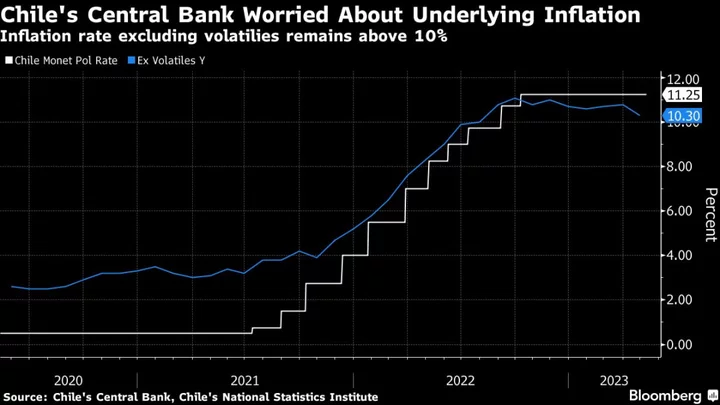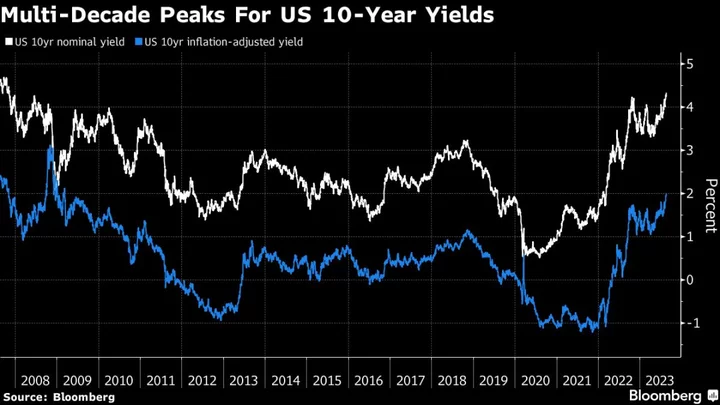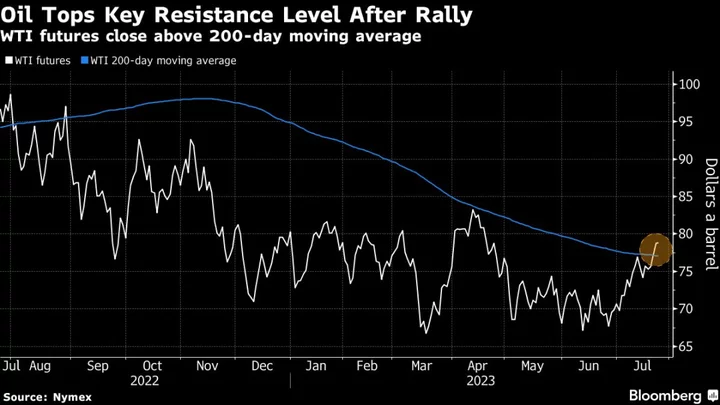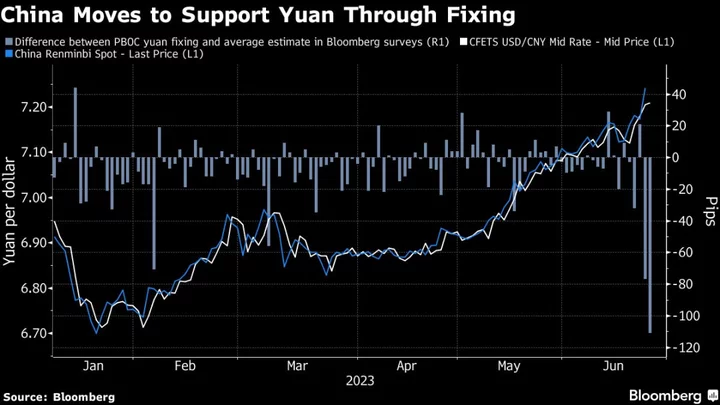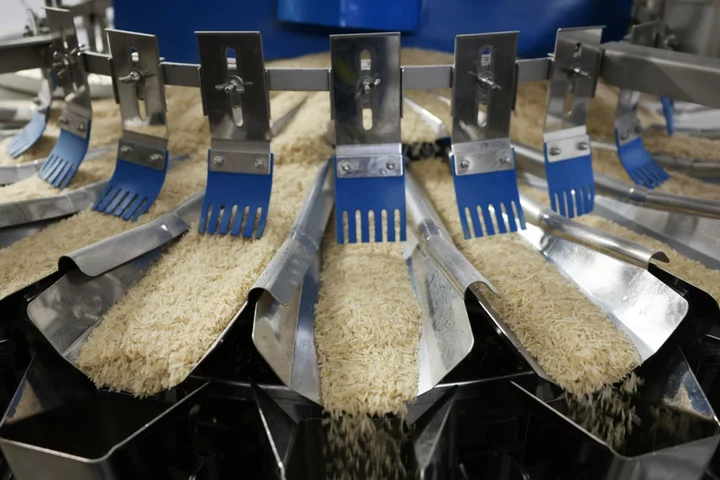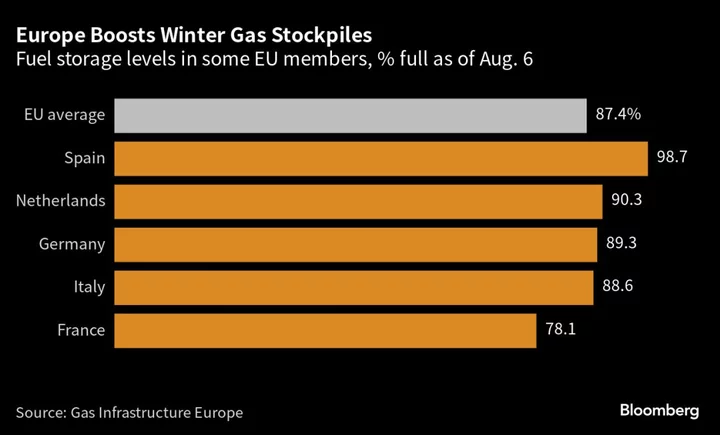Chile’s central bank held its interest rate steady for the fourth straight meeting and signaled it still isn’t ready to reduce borrowing costs as inflation eases slowly.
Board members led by Rosanna Costa voted unanimously on Friday to keep borrowing costs at 11.25%, the highest level in more than two decades. The bank repeated previous wording that rates would remain on hold for the time being, and said the decision was consistent with its outlook.
“The Board considers it appropriate to maintain the MPR at 11.25% until the state of the macro-economy indicates that the process of inflation convergence to the 3% target has been consolidated,” central bankers wrote in a statement accompanying today’s decision.
Headline inflation eased to single digits for the first time in over a year in April, but core prices that exclude volatile items are putting a brake on the slowdown. Cost-of-living rises have proved stubborn as policymakers try to cool an economy that overheated on billions of dollars in early pension withdrawals and public stimulus, and then was hit by higher commodity costs.
Read more: Chile’s Inflation Slides Below 10% for First Time in a Year
What Bloomberg Economics Says
Chile’s central bank sees activity and inflation in line with the forecasts in its March quarterly report. That puts it on track to start cutting rates in July — policymakers’ baseline scenario, which has the benchmark rate down to 8.5% by year-end and 5.25% in 2024. We expect data in coming months to show activity and inflation moving in the direction that the central bank expects, but doing so more gradually. This should be enough for policymakers to start cutting rates in the third quarter.
— Felipe Hernandez, Latin America economist
— Click here for full report
Annual inflation slowed to 9.9% last month while, excluding volatiles, the year-on-year rate stood at 10.3%. Board members wrote both headline and core prices evolved in line with expectations from their last monetary policy report.
“The core component also showed a decrease in its annual variation, although by less than total inflation,” they wrote regarding the April price figures.
“The message and the bias don’t vary much from what the bank had mentioned before,” said Nathan Pincheira, chief economist at Fynsa in Santiago, who noted that easing could start in September. “The slowdown in underlying inflation will take longer.”
Consumption
In their statement, central bankers wrote consumption-related indicators have continued to adjust downward, while investment remains weak. Unemployment has ticked up on the back of factors including a larger labor force, they wrote.
Board members removed prior references to slower-than-expected adjustments in domestic economic activity and inflation.
Chile’s Finance Ministry boosted its economic outlook this week, forecasting gross domestic product will expand 0.3% this year, versus the prior estimate of 0.7% contraction. The government also sees faster average inflation in 2023.
In April, the central bank raised its own economic growth and inflation forecasts for this year.
Elsewhere in Latin America, nations including Peru and Brazil have also held borrowing costs steady as policymakers eye slowing inflation. Meanwhile, Mexico will weigh a pause to its tightening cycle next week.
--With assistance from Giovanna Serafim and Rafael Gayol.
(Updates with economist quotes starting in fifth paragraph, details from the central bank statement throughout)

